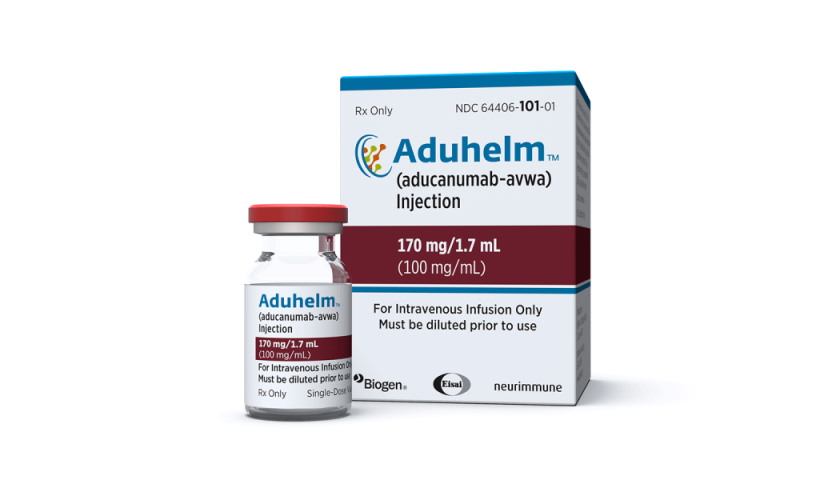ICER revises its view of Aduhelm's price – but not by much

The Institute for Clinical and Economic Review (ICER) was very damning of Biogen's new Alzheimer's disease therapy Aduhelm when it issued its first report on the drug last month, and a swift update to its deliberations won't be much comfort to the company.
The cost-effectiveness watchdog has revised its calculation of a fair price range for Aduhelm (aducanumab) upwards, but only by a small amount.
Biogen would still have to cut the $56,000 list price for a year's treatment with the drug by 85% to 95% to reach ICER's new $3,000 to $8,400 range, up marginally from the $2,500 to $8,300 range set in its earlier draft analysis.
The only reason for the change is that the FDA-approved labelling for the drug requires fewer MRI scans per patient than were carried out during clinical trials of the anti-amyloid antibody.
That's small comfort for Biogen, given that US lawmakers have launched an investigation into Aduhelm's price as well as the sequence of events that led to the drug's approval despite questions about its clinical benefit.
The Kaiser Family Foundation recently estimated that of prescribed at full price, Medicare could spend $57 billion or more per year on Aduhelm – more than Medicare Part B outpatient cover spends on all other drugs combined.
Discussing the latest update, ICER's chief medical officer David Rind acknowledged that the first effective therapy with Alzheimer's will warrant "a very high price in the US health system," but the non-profit group is adamant that Aduhelm does not fit the bill.
"After months of delving into the data, and working with patient groups, clinical experts, and the manufacturer to gain their perspectives, our judgment remains that the evidence on aducanumab is insufficient to be able to demonstrate that patients get benefits that would outweigh the risks and harms of this treatment," he said.
Biogen's price would only be in the acceptable range of $50,000 to $70,000 per year for a hypothetical therapy that – when given as a maintenance therapy – could completely halt the progression of dementia in people with Alzheimer's.
ICER's assessment has been challenged by a number of groups including the Alzheimer's Association which challenges its decision to "blend" data from the two phase 3 trials submitted in support of Aduhelm's approval, and for overplaying the side effects of the antibody which it says are "manageable".
It isn't defending Biogen's price though, describing it earlier this month as "unacceptable" and for many patient "an insurmountable barrier to access".
Biogen – and other amyloid drug developers Eli Lilly and Genentech – also took issue with ICER's methodology, including the way it has calculated cost per quality adjusted life year (QALY) figures – a widely used measure of cost-effectiveness used by health technology assessment (HTA) agencies.
They also said the analysis failed to take into account the wider burden of Alzheimer's on society as a whole.
Biogen will have an opportunity to defend its pricing of Aduhelm at an ICER-sponsored meeting scheduled for 15 July that will hear representation from the company, neurologists, patients, the Alzheimer's association, payer organisations and former FDA Commissioner Mark McLellan.












